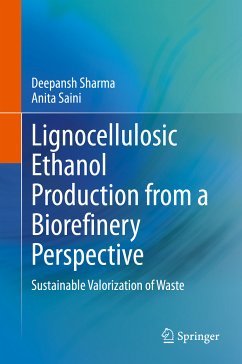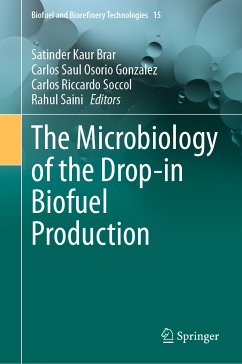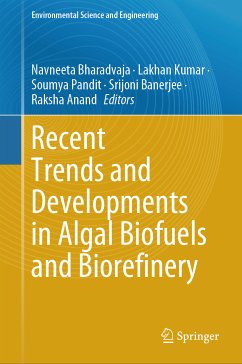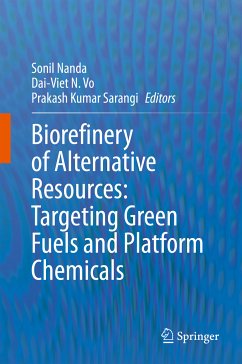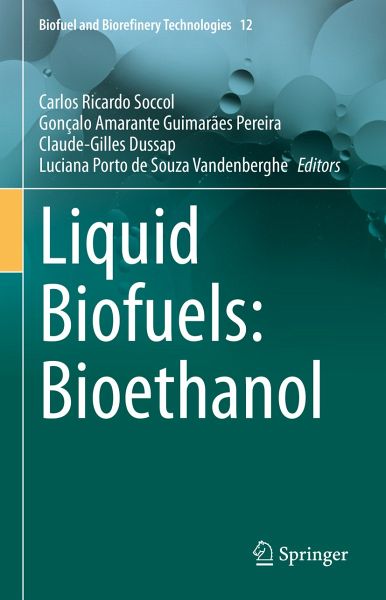
Liquid Biofuels: Bioethanol (eBook, PDF)
Versandkostenfrei!
Sofort per Download lieferbar
80,95 €
inkl. MwSt.
Weitere Ausgaben:

PAYBACK Punkte
40 °P sammeln!
This book covers the present and future of bioethanol biorefinery technologies. It discusses the efficient use of feedstock in bioethanol production, and critically reviews the environmental sustainability of bioethanol production. In addition, it describes the integrated production of bioelectricity, biopolymers, organic acids, and other biomolecules, as well as the use of process-related liquid and solid byproducts and/or wastes during bioethanol generation.Since the bioethanol industry has also led the automotive industry to explore new avenues, this book summarizes the various aspects of e...
This book covers the present and future of bioethanol biorefinery technologies. It discusses the efficient use of feedstock in bioethanol production, and critically reviews the environmental sustainability of bioethanol production. In addition, it describes the integrated production of bioelectricity, biopolymers, organic acids, and other biomolecules, as well as the use of process-related liquid and solid byproducts and/or wastes during bioethanol generation.
Since the bioethanol industry has also led the automotive industry to explore new avenues, this book summarizes the various aspects of ethanol motorization, hybrid engine development, and biofuel electrification.
For decades, clean and renewable alternatives have been sought to reduce dependence on petroleum-based fossil fuels and CO2 emissions. Bioethanol appears as one of the best solutions for the production of biofuels, bioenergy and biochemicals, along with the establishmentof new biorefinery concepts and a circular bioeconomy. Therefore, the ideas and technologies presented in this book contribute to the UN Sustainable Development Goal 7: Affordable and Clean Energy.
This book is a useful reference for postgraduate students and researchers interested in biorefinery and biofuel technologies, both in academia- and commercial laboratories. Early career scientists can use it to fast track into the field. Advanced scientists will find it helpful to gain a broader overview of the field beyond their area of specialization.
Since the bioethanol industry has also led the automotive industry to explore new avenues, this book summarizes the various aspects of ethanol motorization, hybrid engine development, and biofuel electrification.
For decades, clean and renewable alternatives have been sought to reduce dependence on petroleum-based fossil fuels and CO2 emissions. Bioethanol appears as one of the best solutions for the production of biofuels, bioenergy and biochemicals, along with the establishmentof new biorefinery concepts and a circular bioeconomy. Therefore, the ideas and technologies presented in this book contribute to the UN Sustainable Development Goal 7: Affordable and Clean Energy.
This book is a useful reference for postgraduate students and researchers interested in biorefinery and biofuel technologies, both in academia- and commercial laboratories. Early career scientists can use it to fast track into the field. Advanced scientists will find it helpful to gain a broader overview of the field beyond their area of specialization.
Dieser Download kann aus rechtlichen Gründen nur mit Rechnungsadresse in A, B, BG, CY, CZ, D, DK, EW, E, FIN, F, GR, HR, H, IRL, I, LT, L, LR, M, NL, PL, P, R, S, SLO, SK ausgeliefert werden.



